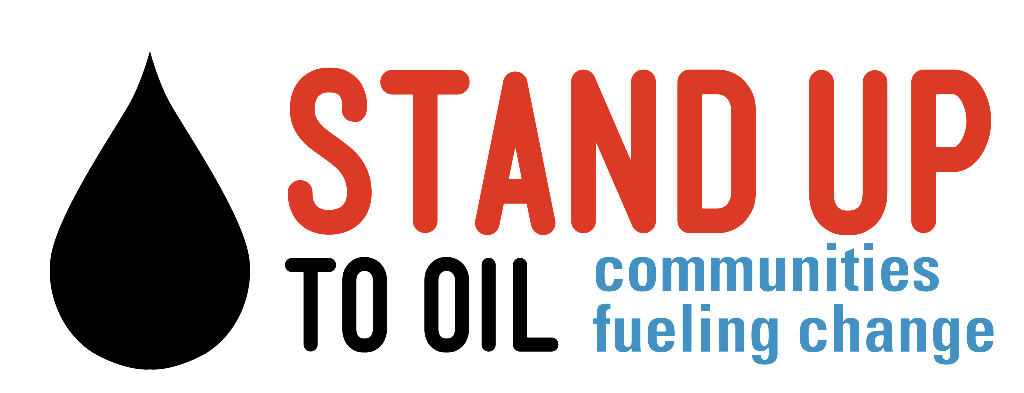A hearing tonight on a proposed oil terminal in Vancouver, WA had standing room only, with an estimated turnout of over 500 and testimony that lasted late into the evening. If built, the Tesoro-Savage proposal would ship almost half as much crude oil as the now defunct Keystone XL pipeline, bringing four additional oil trains through Spokane – through downtown, along I-90, and by businesses, a high school, two hospitals, and homes.
An overwhelming majority of attendees opposed the terminal, with testimony running 112 to 11 against the proposal. Local Tribal leaders, elected officials, health professionals, business owners, faith leaders and other community members spoke up about the impacts of the terminal and increased oil train traffic on the health and safety of cities and towns in Montana, Idaho, and Washington.
Pointing to recent derailments across North America, many spoke about the increased risk of oil train accidents. The Draft Environmental Impact Statement (DEIS) predicts an oil train derailment on average every other year, but critics say the study is downplaying the risks. Other speakers raised concerns about the implications of investing in a terminal that would increase climate pollution, rather than hastening the transition to clean energy.
“This oil terminal is a bad deal for Spokane. We get more oil trains putting our downtown, highway, and river at risk with almost no benefit,” said Spokane City Council President Ben Stuckart. “I think the turnout tonight shows how concerned people are about this proposal – I hope EFSEC and Governor Inslee hear us loud and clear.”
During his testimony, Stuckart asked all opposed to the project to stand, prompting a solid wall of red shirts to stand in the packed room.
Health professionals pointed to the health risks of diesel fumes from oil trains and toxic emissions from the terminal. The Washington State Medical Association recently passed a resolution at its annual meeting to address concerns recognized broadly within the medical community.
“I’m here to represent a purely public health position on this proposed oil terminal,” said Dr. Donald Storey, a retired physician and pulmonologist, from Spokane. “I spent much of my career treating patients with lung disease and my take on this is the only 100% reliable prevention for the increased health risks is to deny the proposal.”
The Tesoro-Savage proposal is opposed by the Spokane Tribe, Spokane Firefighters Union, Vancouver City Council, Vancouver Firefighters Union IAFF Local 452, ILWU Local 4, Columbia Waterfront LLC, the sportfishing community, the environmental community, and people from all walks of life across the Northwest. Comments on the DEIS will be taken until January 22, 2016.
In addition to the Tesoro-Savage proposal, one other terminal, NuStar is proposed for Vancouver. Two of three originally-proposed terminals remain on the table in Grays Harbor, as well as a proposal to increase the oil by rail capacity of the Shell Oil Refinery in Anacortes. The U.S. Congress’s recent vote to lift the crude oil export ban adds another layer of urgency to the defeat of these proposals.
Washington state faces a proliferation of proposals for coal and oil terminals, as well as an expansion of oil by rail to existing refineries. If these proposals move forward, the region’s rail system face extreme strain and a significant increase in the amount of oil tanker traffic through Washington waters is expected.
